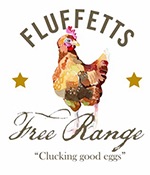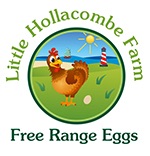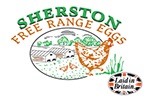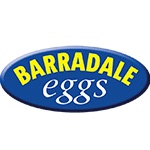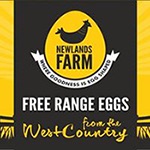Back in 1946, my father, being a country vicar with nearly an acre of ground. started breeding poultry to augment his stipend. Pedigree Rhode Island Reds were purchased from a Poultry Breeder in Wellington Village. We trapnested and recorded each birds productivity, Wing-banded those chicks we wished to keep and sold off the surplus at D/Old. Within 2 years we had built up to a 200 bird breeding flock.
Our first cockerel was purchased from another excellent breeder. We built up to 3 poultry houses and all birds were trap nested. School was six days a week, but during Holidays I helped between working unpaid at a local Smallholder or lambing at a friends farm and Apple picking during the summer season, where I was paid, There was no real standard poultry ration and father used to make up his own every day using various additives, such as Karswood Spice and Fish Heads. Every Wednesday these as an afternoon feed, the day the Fishmonger visited the village. These were cooked outside. We use to go sometimes out to a famer to buy wheat on the Black Market, because of the rationing. We reared all those we needed for replacement and sold eggs to a Hatchery at 5/6p per dozen. I would buy any broodies off my father for 10s and sell them on as broodies for 15s. Pity there were so few, but I bred a few guinea pigs for the Laboratories, which seem innocent enough then to me. I remember we did send a few eggs to the Packing Station when the breeding season was over and I think we only got about 1/6p a dozen.
During my fathers time we joined the PAGB (Poultry Association of Great Britain) which not only gave discounts when purchasing buildings and other equipment via them, but they also organised a whole host of excellent Poultry Speakers.
Then two years of training with poultry on two very different farms, the first rearing Ducks, Cockerels and Turkeys for the table. We did our own despatch, plucking and evisceration for the table, then sold on the farmers Milk Rounds. This was back in 1951-2. Then I went on to another farm where breeding was carried out . All birds were kept on Free Range as were those at the previous farm, although the Turkeys were finished off in Motley Veranda Units. Again rations were made up on the 2nd farm, the basic being Bakery Waste and mixed by shovel with a little water and fed as a morning feed, then whole wheat in the afternoon. Both farms were an amazing experience for learning the trade. At the second we carried out Post Mortems learning to recognise different symptoms before a problem got out of hand. The manager there was an ex gamekeeper who certainly knew what he was about and keen to teach me. The art was to see the very first signs before it was allowed to take hold. Surplus eggs, ungraded were sold by price so at that time I had no knowledge of seeing eggs graded.
After in 1955 I went to Merrist Wood Agricultural Collage to study General Farming. It was a marvellous college because it dealt with all farm animals as well as fencing and vegetable growing. Lectures in the morning and practical in the afternoon. The lecturers were also very skilled and took the individual practical afternoons. We were in groups of 8 so there was no excuse not to learn. Poultry was to some extent not considered very important so when a problem occurred in their one Deep Litter House I was always sent for. The eggs tasted terrible, and I only found out years later the reason for this was that they were using Oak Wood Shavings.
After College or just before it finished I obtained a Poultry Managers position on a unit starting from scratch with 3.500 birds in brand new Visi Chick Battery Units, which I was told was at that time the largest Unit in the South. Eggs were needed to supply the Dairies with Eggs for their Milk Rounds. A second hand Ben Nevis Egg Grader was purchased as soon as production started. After my first year in this my first job, I was missing the monthly PAGB lectures I had been lucky enough to attend, So I formed, with the help of several ex forces Officers. The West Sussex Poultry Association and organised different monthly speakers, at the same time enjoying the company of others. My Farm Manager was not best pleased because the NFU already had a Poultry Committee which did nothing, so their interested members joined us.
The following year the unit was doubled up to 7,000 and then they wanted to increase further by building a Wire Floor Unit to hold 5,000 layers. I argued as much as I was able against this, but the Farm Manager thought he knew all about poultry having no experience of poultry when I arrived.. We then had to employ a new young member of staff to walk up and down most of the day to prevent deaths due to layers crowding in the Communal Nest Boxes and dying from suffocation.
I also had to rear replacement chicken purchased at Day Old, firstly in Tier Brooders, then at 4 weeks of age in Hayboxes outside, to be followed at 8 weeks of age in 100 bird Field Arks, 1000 pullets per field, so apart from working 7 days a week these had to be shut up each and every night. In the summer it meant you just could not go out. Because of Fox Losses, the manager decided that I needed to rear from 8 weeks of age to POL in Straw Yards. Yet another failure, so a proper indoor rearing site was set up on another of the Chichester Dairies Farms.
You may know all about the demise of many of the Egg Packing Stations, via NEPRA which was started by just 3 of us, the leader was Seymore Thistlewaite who asked me to help start, but I said we needed another, so knowing another poultry manager, we asked him. I had at that time my own company.
After giving evidence to the Rowland Right Committee as did many other poultry organisations including the Egg Marketing Board which had been set up by the NFU. The Government allowed those sections of the Poultry Industry with an Interest to meet and give evidence to the Rowland Wright Committee. After the hearings which were forwarded to the Government, they in turn asked a Civil Servant whose work was in Economics. All he knew about poultry was that his mother kept 6 chicken down in the West Country. Another Economics Expert was brought in to help, but unfortunately for us , they were very nice and conscientious but didn’t have a clue. The Government appointee asked our PR for help. He asked me if I was willing to join meetings with them, and that is how most of our evidence it not all, was submitted to the Government and so the Egg marketing Board was abolished.
I met one of the ex- Egg Packing Station Directors a year later at the Guildford County Agricultural Show and he asked how we obtained so many people to support us. It was easy, When the Reporter of the Daily Mail rang me, on a very regular basis to ask how many more supporters we had I just kept increasing the numbers. In actual fact we only had around 150 but in the Newspapers it had been increased to 2,000. When I told him how we had just kept increasing the numbers, he just laughed. As we all know the Media will printed anything they are told. This reporter was also a great friend of mine so he had no reason to doubt me.
ED: Thank You very much for that.
If anyone else has memories of early days in egg production, let me know. It’s always interesting to remember how our industry developed.

